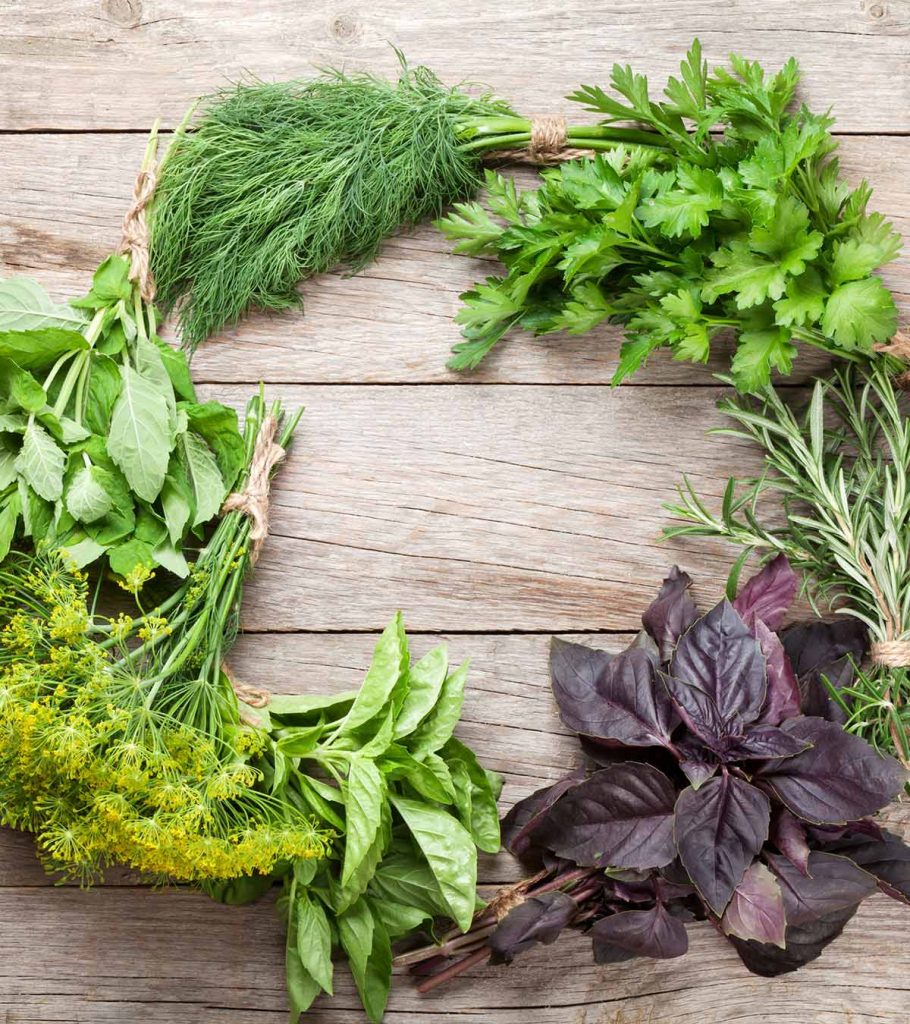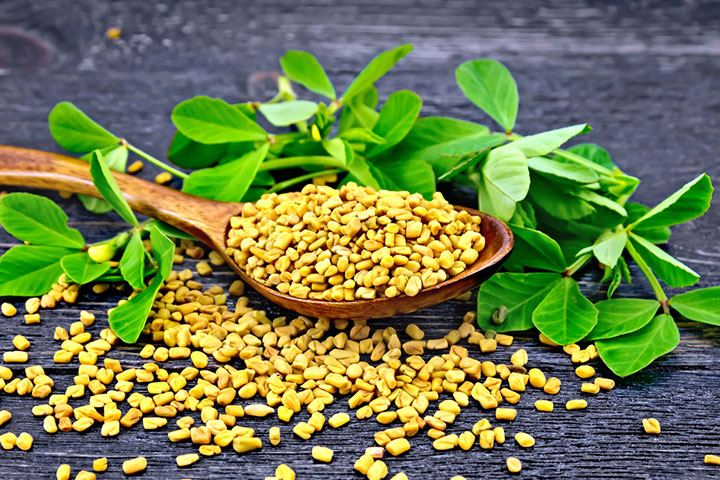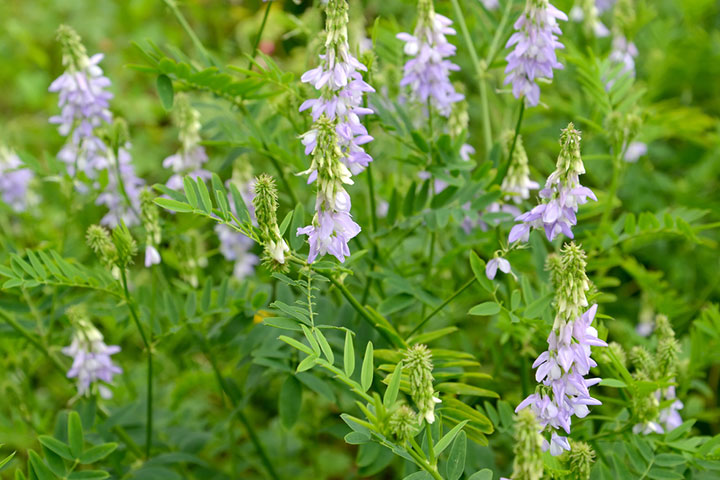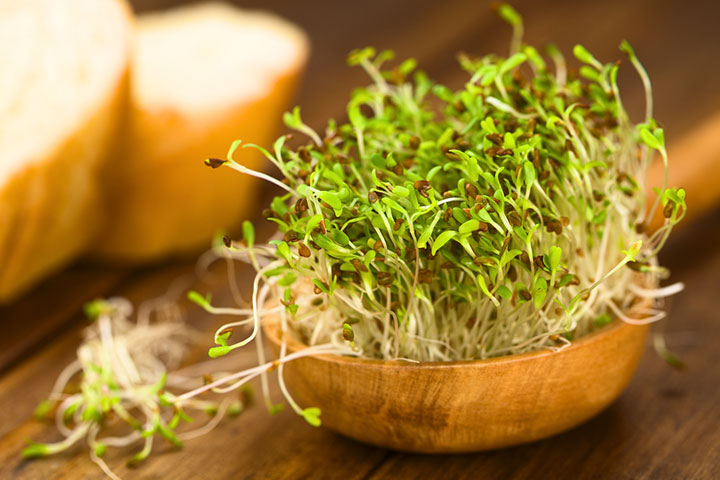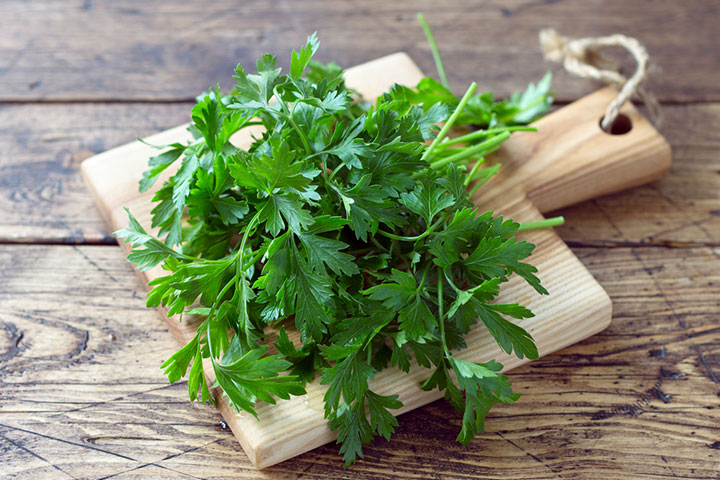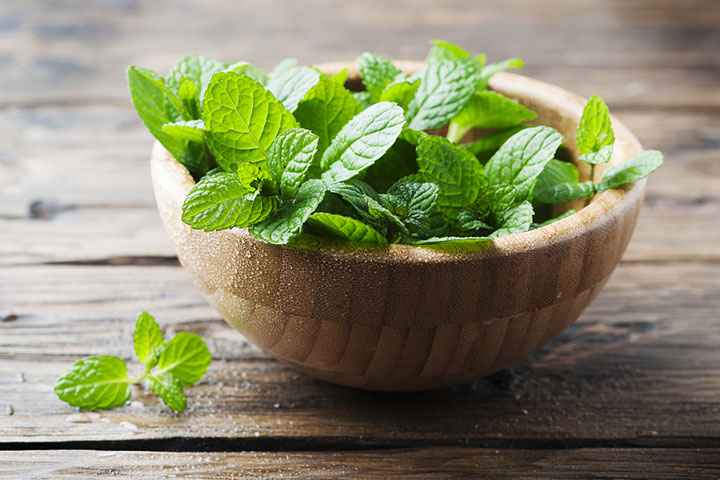Several women consider using herbs while breastfeeding to boost their milk production and supply. According to studies, herbs such as fenugreek, fennel, blessed thistle, and goat’s rue have galactagogue properties that may help maintain, promote, or induce milk production (1). However, their safety and efficacy for nursing mothers and their babies is inadequately researched. Thus, you should consult your healthcare provider before using herbs to avert any side effects.
Read on to learn the safety of herbs when breastfeeding, the herbs that may promote milk supply and those you should avoid, and precautions you should observe while using herbs when breastfeeding.
Is It Safe To Take Herbs While Breastfeeding?
The safety depends on the herbs you are taking. Herbs such as fennel and fenugreek may not be harmful if taken in small quantities, while herbs such as sage leaves and parsley may dry up the breastmilk.
Also, there is no conclusive research on the safety of herbs when breastfeeding (2). Herbal galactagogues are often considered safe by anecdotal accounts. Some herbs may be useful in increasing the supply of breast milk.
Herbs That May Help Increase Milk Supply
Herbs have been used for generations across various cultures to increase milk production in lactating women. Let’s see a few of them here (1) (4).
- Fenugreek: It is one of the commonly used herbs while breastfeeding. Fenugreek is grown mainly in India, Mediterranean countries, and Southern Europe (3). It is often used in warmer cultures for people with sweating problems. Breasts are modified sweat glands, which is probably why it has an impact on the breast.
However, if taken in excess, it may cause nausea or vomiting in mothers and/ or diarrhea in babies. If taken in excessive quantities, it is known to have a hypoglycemic effect (reduction in blood sugar level) in mothers with diabetes. Also, it may not be suitable for women having asthma. Also, it may produce a maple syrup-like smell in baby’s or mother’s urine, sweat, or milk.
- Blessed thistle: Blessed thistle’s white veins in the leaf represent breast milk in several folklores. The herb is considered to benefit the liver as well. It may have a laxative effect or cause an allergic reaction.
- Goat’s rue: Found mostly in Central and Southern Europe, this herbaceous plant is used in many products in combination with other herbs (5). Its galactagogue effect was first reported in 1873 to the French Academy (6). It is also taken in combination with fenugreek and other herbs for a stronger effect. It should not be used fresh as it may cause toxicity. The dried form (dry leaves) is not known to have side-effects.
- Fennel: It has also been used for treating gastrointestinal disorders. Its galactagogue properties were first reported by a Greek botanist. Since it is aromatic in nature, fennel is often added in regular meals in the form of seeds. It may cause allergic reactions or dermatitis.
- Aniseed/anise: It is an aromatic spice found in West Asia, Eastern Mediterranean, Mexico, and Spain. It may cause an allergic reaction in a few women.
- Alfalfa: A rich source of nutrients, its sprouts have a nutty flavor and are rich in estrogenic compounds. According to the American Pregnancy Association, alfalfa is often used in combination with fenugreek. However, it also acts as a laxative and may cause loose stool. Moreover, it is not recommended to people allergic to peanuts or legumes or having systemic lupus erythematosus.
- Blessed thistle: It is used in alternative medicines and is known to have a positive effect on milk supply. The herb is commercially available in the form of tea or capsules. According to the American Pregnancy Association, it works best in combination with fenugreek. Generally considered safe, it may cause an allergic reaction in some.
- Shatavari: Its roots have been used in the ancient Indian medicine system (Ayurveda) as a galactagogue. The roots are often consumed in combination with cardamom. However, there is scarce literature available in modern medicine in terms of dosage, efficacy, or side effects.
- Garlic: It is widely used as a culinary ingredient around the globe. It has been observed that the intake of garlic may increase the nursing time because of the milk odor. However, if your baby doesn’t like the peculiar garlic odor, the result may reverse too.
- Torbangun: The leaves of the torbangun plant, also known as Spanish thyme and Indian borage, have been used as a galactagogue in indigenous communities of Indonesia for ages. Research indicates the herb can boost breast milk production up to one month from the last date of supplementation. The herb is noted not to affect or alter the nutritional composition of the breast milk (7).
Herbs To Avoid While Breastfeeding
Some herbs can have an adverse effect on breast milk supply as they dry up the milk. Such herbs may be avoided by lactating mothers. However, women with hypergalactia or those trying to wean a toddler may want to use them. Hypergalactia means an overabundance of milk supply (8).
Below is a list of herbs that may reduce breast milk production (9) (10) (11).
- Sage leaves: It is consumed in the form of tea made from the extract of its leaves. In addition to drying up breast milk, it may cause nausea, vomiting, or dizziness and some other side effects in patients with asthma, diabetes, or seizures.
- Parsley: It may decrease milk supply and lower prolactin levels in breastfeeding women, when consumed as a food. Usually, women who want to control or stop milk production, take these in the form of capsules in combination with sage. However, there is no clinical evidence to verify its effects.
- Jasmine: Its leaves applied topically on breasts may suppress milk supply. It is generally regarded as safe by the US Food and Drug Administration. However, there is a scarcity of information on its dosage, effectiveness, and side effects.
- Peppermint: Its oil is believed to reduce milk supply, reduce pain, and treat cracked nipples in breastfeeding women. However, it may be toxic when applied topically in high doses.
There is a lack of regulation on natural and herbal products, and thus it is good to exercise caution while using herbs.
Precautions While Using Breastfeeding Herbs
If you plan to have herbs while breastfeeding, then first discuss it with your healthcare provider and the baby’s pediatrician. Consider the following points before having herbs while breastfeeding (12).
- There is no adequate information on the safety and effectiveness of most herbs used during breastfeeding, including some commonly available herbs such as nettle, anise, caraway, coriander, dill, red clover, and yarrow.
- The compounds found in herbs have the potential to pass into breast milk from where it can reach the infant’s body. The effects of the herb on the baby may not be known due to limited research.
- Some herbal products may not always follow GMP (good manufacturing practices), making the quality and purity of the product questionable. Therefore, select products made by reputed manufacturers.
Natural or herbal products can easily be found in homes, supermarkets, and pharmacies. Many of these herbs, such as fenugreek, blessed thistle, fennel, aniseed, alfalfa, Shatavari, garlic, and others, have been used to enhance breastfeeding and have been passed down through generations as traditional or alternative medicine. However, the level of safety and effectiveness may differ for each person. But, certain herbs, including parsley, jasmine, and sage leaves, should be avoided during nursing. Thus, before using any herb for breastfeeding improvement, speak with a lactation professional or a physician.
Key Pointers
- Several herbs are used as galactagogues in herbal remedies to increase breast milk production in lactating women.
- Common herbs used for this purpose include fenugreek, goat’s rue, fennel, anise, alfalfa, Shatavari, and garlic.
- On the other hand, herbs like sage, parsley, jasmine, and peppermint are known to decrease milk flow and are used by lactating mothers to stop milk production.
- There are no authorized safety guidelines for using herbs while breastfeeding, so it is advisable to use them in moderation to avoid adverse effects.
The experts in this video explain the amazing benefits of Ayurvedic herbs and supplements for lactation. Discover how they can help you increase your milk supply and nourish your baby.
